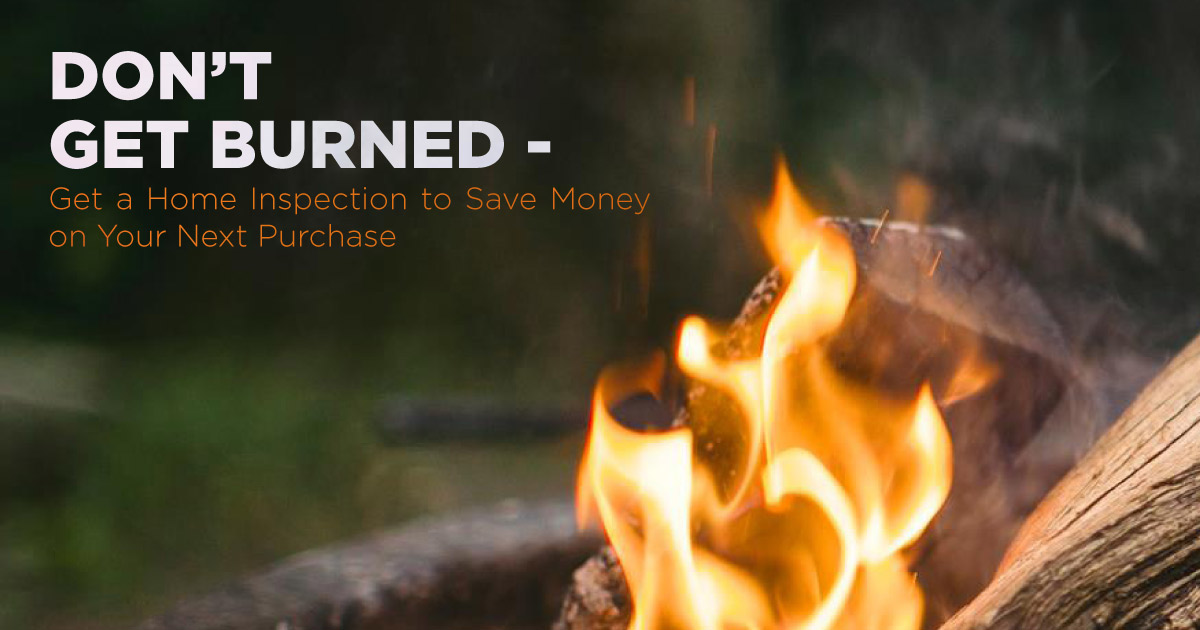Okay, you made one of the most important decisions in your life: you’re buying a home! You found your ideal home. It’s in your desired neighborhood, close to everything you love, you dig its design and feel, and you’re ready to finalize the deal.
But, whoa … wait a minute! Buying a home isn’t like buying a toaster. If you discover something’s wrong with your new home, you can’t return it for a refund or an even exchange. You’re stuck with your buying decision. Purchasing a home is an important investment and should be treated as such. Therefore, before finalizing anything, your “ideal” home needs an inspection to protect you from throwing your hard-earned money into a money pit.
A home inspection is a professional visual examination of the home’s roof, plumbing, heating and cooling system, electrical systems, and foundation.
There are really two types of home of inspections. There is a general home inspection and a specialized inspection. Most general inspections cost between $267 and $370. The cost of the specialized inspection varies from type to type. If the inspector recommends a specialized inspection, take that advice because buying a home is the single most important investment you’ll make and you want extra assurance that you’re making a wise investment.
By having your prospective new home inspected, you can:
- Negotiate with the home seller and get the home sale-ready at no cost to you
- Prevent your insurance rates from rising
- Opt-out of the purchase before you make a costly mistake
- Save money in the short and long run
How Much Money Can a Home Inspection Save You?
A home inspection helps to find potential expenses beyond the sales price, which puts homebuyers in a powerful position for negotiation. If there are any issues discovered during the home inspection, buyers can stipulate that the sellers either repair them before closing or help cover the costs in some other way. If the sellers do not want to front the money to complete the repairs, buyers could negotiate a drop in the overall sales price of the home!
Perhaps even more importantly, a home inspection buys you peace of mind. Your first days and months in a new home will set the tone for your life there, and you don’t want to taint that time with worries about hidden problems and potential money pits.
To help you understand how much money a home inspection can save you, here are some numbers from HomeAdvisor to drive the point home … so to speak.
Roof – Roofing problems are one of the most common issues found by home inspections. Roof repair can range between $316 and $1046, but to replace a roof entirely can cost between $4,660 and $8,950.
Plumbing – Don’t underestimate the plumbing. Small leaks can cause damage that costs between $1,041 and $3,488 to repair. Your home inspector will look for visible problems with the plumbing such as leaky faucets, water stains around sinks and the shower, and noisy pipes. Stains on walls, ceilings, and warped floors show plumbing problems.
Heating and Cooling – Ensuring the home’s heating and cooling system is working properly is very important. Your home inspector will make you aware of any problems with the existing system and let know you whether the system is past its prime and needs replacing. You don’t want to throw down $3,919 to replace an aged furnace. Nor do you want to spend $5,238 replacing an ill-working air conditioner. Replacing and repairing a water heater gets pricey too. Wouldn’t you rather use your savings for a vacation?
Electrical Systems – When thinking of the electrical system, no problem is better than even a small problem. Electrical problems might seem small, but they can blossom into thousand-dollar catastrophes. Make sure your home inspector examines the electric meter, wires, circuit breaker, switches, and the GCFI outlets and electrical outlets.
Foundation – If your home inspector sees that the house is sinking, that means water is seeping into the foundation; cracks in walls, sticking windows, and sagging floor also indicate foundational problems. The foundation is so important that if the general inspection report shows foundation problems, lenders will not lend money on the home until those issues are solved. Foundation repairs can reach as high as $5,880 to repair.
As you can see, a small investment of a few hundred dollars for a general home inspection can save you tons of money and future headaches. To save even more money, you might consider investing in a specialized home inspection as well. A specialized inspection gets down to the nitty-gritty of all the trouble spots the general home inspection might have located.
How Much Money Can a Specialized Inspection Save You?
A general home inspection can trigger a need for a specialized inspection because the general home inspector spotted something off about the roof, sewer system, the heating and cooling system, and the foundation. If humidity is high where you’re buying your home, a pest inspection is recommended. Usually, a pest inspection will check for mold as well as pests. Most homebuyers have a Radon test done to ensure air quality.
Roof – Roof specialists examine the chimney and the flashing surrounding it. They also look at the level of wear and tear of the roof. They can tell you how long the roof will last before a new one is needed. They’ll inspect the downspouts and gutters. The average cost of a roof inspection is about $223. Most roof inspections will cost between $121 and $324.
Sewer System – Making sure your sewer system has no problems should happen before the closing because what might look like a small problem can turn into a large problem in the future. If any issues pop up, you can negotiate with the seller about needed repairs or replacements before closing. Cost of inspection will vary; on the low side, it might cost you around $95, and on the high side, it might cost you $790. Compare these numbers to repairing a septic tank, which can cost, on average, $1,435 (though it could reach as high as $4,459), and you can see that the cost of an inspection is worth it when you catch the problem before you buy.
Heating and Cooling System – A HVAC specialist will check the ducts for blockage and for consistent maintenance of the unit. The repairs needed might be small or they might be big, but this small investment will save you headaches and lots of money down the road.
Foundation – A foundation specialist will pinpoint the exact problem with the foundation. The specialist will look at the grade or slope of the home. The ground should slope away from the home in all directions a half inch per foot. Most homeowners have spent between $1,763 and $5,880 to repair their foundation. And the average cost to re-slope a lawn is at $1,705. Most homeowners paid between $933 and $2,558 to re-slope their lawn.
Pest Inspection – Termites eat a home’s wood structure from inside out and can cause thousands of dollars worth of damage to your home. Other pests can turn your dream home into a nightmare. Depending on the humidity of where you live, you should a pest/termite inspection every two years or so. You can start with your potential new home. Most inspections are extensive and cost between $109 and $281. The good news is that most pest management company will guarantee the past inspection if bugs show up.
Radon Test – Radon is a naturally occurring invisible odorless gas that is the second leading cause of cancer. A radon test is a good test to have done as a good habit. The cost of radon test is low and its cost varies from state to state. Here’smore information about Radon.
Steps You Can Take to Save Money Using a Home Inspection
To help yourself save with a home inspection, you will need to:
Attend the inspection – Attending the inspection is important because it’s an opportunity for you to ask questions.
Check utilities – Checking utilities let’s know the energy efficiency of your potential home.
Hire a Qualified Home Inspector – We can recommend bona-fide home inspectors to you. You can compare our recommendation with all inspectors who belong to the American Society of Home Inspectors. While the decision of who you work with is always yours, we can educate you so that you make a wise homebuying decision.


